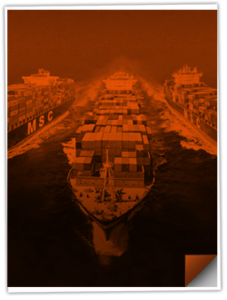What Was the Smoot-Hawley Act?
The Smoot-Hawley Act, officially known as the Hawley-Smoot Tariff Act, was enacted into law on June 17, 1930. Imagine the global economic climate at the time: the world was entrenched in the throes of the Great Depression. Unemployment rates soared, and economies worldwide were struggling to stay solvent. In this context, the U.S. government believed that raising tariffs on imported goods could protect American jobs and industries. They implemented this by imposing hefty duties on over 20,000 imported items, hoping to boost domestic production.
This legislative move was intended as a shield for American industries, but it was a double-edged sword. While the idea was to encourage consumers to buy American-made products, the reality was that the increase in tariffs led to higher prices for consumers. This move didn’t just affect foreign goods; it drove up the cost of living for Americans as well, placing additional strain on an already beleaguered economy.
Why Did It Happen?
The primary intention behind the Smoot-Hawley Act was to offer protection to American farmers and businesses from the pressures of foreign competition. However, the act had an opposite effect, as it instigated a chain reaction of trade hostilities. Other countries, understandably upset by the U.S.’s protectionist stance, retaliated with tariffs of their own. This tit-for-tat approach triggered a massive decline in international trade, exacerbating the economic woes of the Great Depression.
Trade Protectionism Gone Wrong
Trade protectionism, which involves a country safeguarding its industries by imposing tariffs or quotas on imports, can seem like an appealing strategy to boost local businesses. However, as demonstrated by the Smoot-Hawley Act, protectionism can sometimes lead to unintended negative consequences. Rather than fostering economic growth, it can stifle innovation and competition, leading to inefficiencies and economic stagnation. In the long run, these policies can be detrimental not only to international relations but also to domestic economic health.
The backlash from the Smoot-Hawley Act serves as a cautionary tale about the potential dangers of aggressive protectionism. It highlights the importance of considering the broader economic ecosystem before implementing policies that may seem beneficial in isolation but can have far-reaching adverse effects.
The Great Depression and U.S. Tariffs
The Great Depression was an era marked by profound economic hardship. The U.S. government’s rationale behind imposing tariffs was to stimulate domestic production and create jobs, under the assumption that reducing foreign competition would lead to economic recovery. However, the opposite occurred. When the U.S. made it costly for other nations to sell their goods domestically, these countries reciprocated, leading to a steep decline in international trade.
The global trade contraction further deepened the economic depression, leading to severe unemployment and a prolonged recovery period. This period underscores how interconnected global economies are and how protectionist policies can lead to a vicious cycle of retaliation that harms all involved.
How Did It Affect Trade?
The repercussions of the Smoot-Hawley Act were both immediate and severe. Global trade volumes plummeted as industries that depended on imports and exports faced significant challenges. The U.S. experienced a drastic reduction in its exports due to retaliatory tariffs imposed by other countries. This resulted in a ripple effect, causing economic distress not only in the U.S. but also among its trading partners. It was a stark reminder that in trade, ‘what goes around, comes around.’
Lessons Learned
Reflecting on the Smoot-Hawley Act, it becomes clear that economic policy-making requires a nuanced approach. It underscores the necessity of considering global implications when implementing domestic policies. In today’s world, countries are more interconnected than ever, and protectionist measures can lead to trade wars that are detrimental to all parties involved. Learning from the past, policymakers must strive to promote open and fair trade practices that foster cooperation and mutual benefit.
The act serves as a reminder of the importance of dialogue and negotiation in resolving trade disputes. As nations navigate the complexities of global trade, it is crucial to learn from historical experiences to avoid repeating the mistakes of the past.
The Role of International Shipping
For those involved in the shipping industry, understanding the impact of policies like the Smoot-Hawley Act is essential. This legislation disrupted shipping routes and trade flows, demonstrating how geopolitical factors can significantly influence the industry. Staying informed about such policies and their potential implications is crucial for industry professionals to navigate the ever-changing landscape of global trade.



